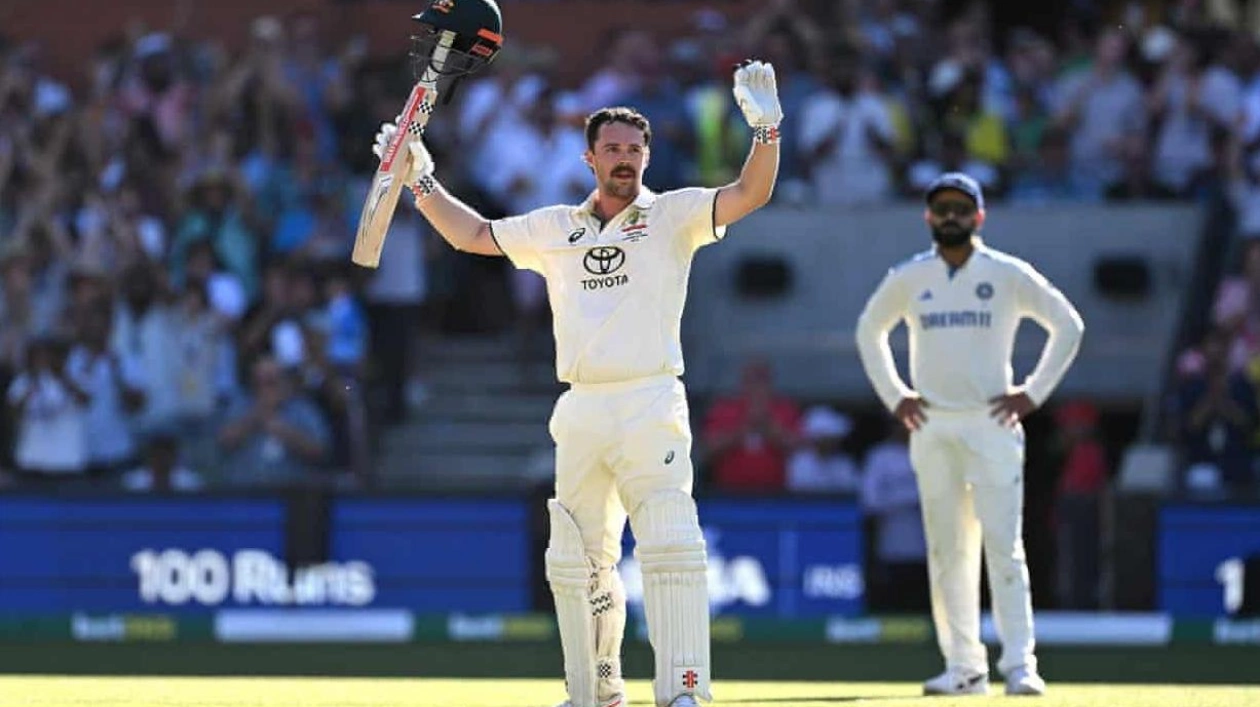A sun-drenched afternoon, an Adelaide Test match, and two South Australian batsmen sharing the crease under clear skies. It felt just right, as Travis Head and Alex Carey steered Australia towards a first-innings lead of 157 against India, dominating the second session on day two. The historic scoreboard ticking away, the church steeple looming over the grandstand, the hill packed to the brim, and the crowd, sold out and vocal, expressing their approval as Head, in particular, kept dispatching the pink ball towards them.
In today's Australia, state-based loyalty is largely irrelevant, a mere dance for politicians to perform half-heartedly around budget allocations or State of Origin. Despite cricket's domestic structure still being divided by state lines, Adelaide Oval is widely acknowledged as Australia's premier ground, and the Adelaide Test is considered the highlight of the summer. The festive atmosphere is unparalleled, with the city always turning out in force. Even with grumbles about being assigned the struggling West Indies for two consecutive summers, Adelaide still drew over 50,000 spectators in the first two days both times. For the same team, Perth struggled to attract that many over five days.
South Australia might be justified in feeling a bit overlooked when it comes to Test representation, given the long drought of local players. Since the Chappell era, the pickings have been slim. Tim May, who rang the bell to start this Test, was an off-spinner in a challenging era and a last-man-standing when West Indies won by a run. Greg Blewett had his moments, Darren Lehmann had a stint, and Jason Gillespie had a notable career. But if a South Australian played, they were often alone.
In the current landscape, with bigger stars fading, Head and Carey form the core of Australia's batting. Both are South Australian natives. A third member has recently joined their ranks, state captain Nathan McSweeney, who opens the batting. Though from Queensland, he has elevated his game in his adopted state. Nathan Lyon, whose Test career took off after moving to South Australian domestic cricket, might also be considered part of this local contingent.
Returning to the present, it felt fitting. The two most local selections doing the job when Australia needed it most, a reward for Adelaide's fans and the South Australian Cricket Association, who have worked tirelessly to make this event a delight. The national team was in a precarious position when Carey joined Head after the fifth wicket fell. McSweeney had ground out 39, mostly the previous evening after Usman Khawaja's dismissal, before Jasprit Bumrah's seam movement drew an edge. Marnus Labuschagne had climbed out of his slump with a fluent 64 before poking a catch to gully. But Steve Smith nicked down the leg-side for two, and Mitchell Marsh edged Ravichandran Ashwin for nine, leaving Australia 28 runs ahead at five down.
With Head at the crease, more quick wickets seemed inevitable. He swung at wide balls, flashed through gully, and when the field shifted for a bouncer attack, he edged through a new gap between keeper and second slip. He scorched Ashwin for six over long-off, then tried to repeat it next ball, skying a slog sweep. Mohammed Siraj's diving attempt couldn't secure the catch. Yet, Head continued to make it work. Despite his aggressive approach, he is surprisingly consistent. With a low proportion of single-figure scores and fast starts, he usually makes something substantial. Eight centuries in 51 matches and an average over 43 are solid returns.
This innings was no different, a joy to watch. Three sixes off Ashwin, and a late one off Siraj flicked over square leg. Powerful drives down the ground or through cover, few players match Head's ability to hit the ball so hard it seems to vibrate into another dimension. The sound of impact echoed, the crowd's cheers reverberated, creating a virtuous cycle. Meanwhile, Carey played cautiously, adding 74 with just 15 needed. When he edged off, the lead was 102, giving the tailenders license to attack. The evening session, promising venom, delivered.
Head was cleaned up on 140 trying to smash a yorker, Siraj, frustrated, launched into a send-off, to which Head responded with a blunt retort. But the spectators got their money's worth: Mitchell Starc curling the pink ball, Scott Boland continuing his first-over magic, Pat Cummins decapitating the opposing captain, and Rishabh Pant counter-attacking. Head is a good-fortune indicator: after each of his previous seven centuries, Australia has won the Test. This time, with India 5 for 128 and 29 runs behind, Australia has every chance to make it eight from eight. If they don't, it will be due to an Indian miracle. If they do, the only downside for Adelaide is that Sunday, at 26 degrees and clear, might be a short day at the cricket.
Source link: https://www.theguardian.com






